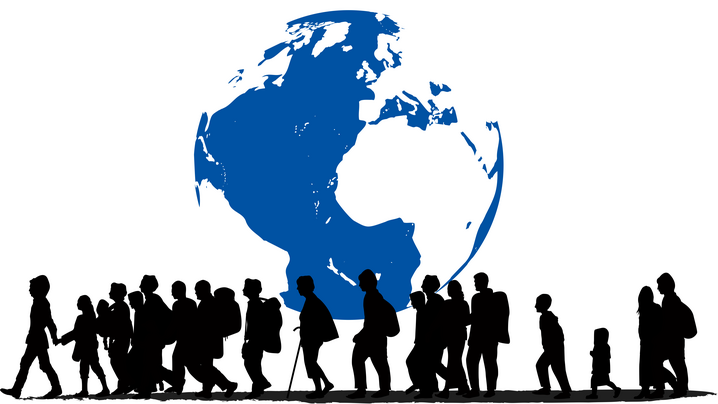
An increasingly globalized world brings wider and complex challenges with each day, impacting day-to-day local government administration on issues that range from foreign direct investment in a town or city, to delivery of public utilities that intertwine with global supply chains and geopolitics.
Historically, this has been unique to the movement of people across borders, as increased information and access to it allows people to cross borders around the globe easier, for multiple reasons, whether economic or humanitarian.
Contemporary governance challenges include shifting migration patterns toward new destinations that demand adaptation of services of infrastructure to serve growing and shifting communities and jurisdictions hosting migrants. In recent years, historically “traditional destinations” for migration flows are less sought after; while “less traditional” locales around the world are increasingly receiving newcomers.
These shifting patterns represent all sorts of challenges at the local level in terms of human protection, public safety, local governance, and service delivery for local communities, something local administrations are prompted to address directly.
In some instances, local officials charged with addressing challenges from increased demand of local services for growing communities adapt programmatic and normative experiences and practices from peer jurisdictions to develop their own solutions. Where there are no experiences available, local officials can develop their own practices and rules by invoking international law and adopting international legal rules, frameworks, and principles for a specific subject matter solution.
International Law Assists Leaders in Local Rulemaking to Address Challenges in an Increasing Globalized World
Local governments and communities have an important role in protecting human rights and are uniquely situated to do so, through the use of local domestic law and rules. Important human rights are primarily enforced and protected on the local level—in the communities where citizens work and live. As such, human rights should be acknowledged at the local level to guarantee access to local services.
International migration has demonstrated this, where local jurisdictions have advanced migrant rights through local government initiatives, in particular rulemaking to incorporate international human rights law standards into their own rules. In turn, this practice can contribute to making local spaces and communities increasingly “human rights friendly”; my full article, Local Human Rights Governance to Advance Migrants' Rights, will discuss examples of this.
Under international human rights law, human beings are inherently entitled to fundamental rights and freedoms—rights that governments must protect through the application of international law through comporting domestic legal standards.
International human rights law is effective when human rights rules and standards are incorporated into domestic legal systems. The international community and treaty bodies have encouraged local governments to do this: incorporate human rights standards. After all, “enforcement of human rights rarely begins or ends at any single nation’s boundaries, and action to protect and promote human rights, can be furthered by the imaginative use of both national and international techniques.”
Learning from Different Jurisdictions to Adopt International Legal Instruments Locally
There are growing examples of city and local government authorities adopting and applying human rights autonomously and voluntarily to tackle challenges of all sorts at the local level through a human rights lens.
The article provides examples and analysis, how local jurisdictions can contribute to build more “human rights friendly” communities, by independently adopting international human rights law standards into their own rules and frameworks. In turn, these locally tailored solutions are also useful to help influence broader political action at the national level for humane responses to shifting and increasing global trends in migration.
Developing Tailored Solutions
International law, including international human rights law, provides a range of standards and rules that include migration, public safety, construction, and trade, among many others. These international standards can serve as resources and help city managers respond to and address new, contemporary, and uncommon local governance challenges.
In the realm of international migration, there are many instances that international human rights, practices, and lessons have served as a practical resource to help cities, counties, and towns develop tailored normative solutions and programs for specific groups and communities.
In an attempt to bridge the notion between international and local, city and county officials can directly tap into and adopt international resources and standards provided by international law.
Access the full paper for free: Local Human Rights Governance to Advance Migrants' Rights
Find more on ICMA’s Global Technical Assistance Programs, or for questions on our global work, please email global@icma.org
New, Reduced Membership Dues
A new, reduced dues rate is available for CAOs/ACAOs, along with additional discounts for those in smaller communities, has been implemented. Learn more and be sure to join or renew today!
